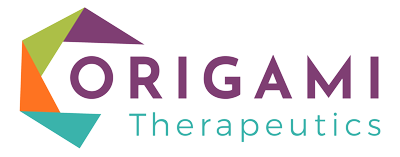
ORICISION™ Drug Discovery Platform
ORICISION™ Drug Discovery Platform
Treating Disease in a New Way: Precision Protein Degradation and Correction
Origami Therapeutics is working at the forefront of new and exciting modalities called targeted protein degradation (TPD) and targeted protein conformation correction to invent new medicines for diseases with limited or no known treatment options, that are capable of targeting proteins traditionally considered “undruggable.”
The key components of our ORICISION™ drug discovery platform combine Origami’s in-depth understanding of the linkage between a misfolded protein and the pathologic effects on cell function together with our expert chemistry, biology, and computational capabilities. Using the ORICISION™ platform, Origami is able to develop protein degraders that address significant, unmet medical needs in neurodegenerative diseases.
With the flexibility to design protein degraders and correctors, we can address different neurodegenerative disease-causing proteins with a targeted approach.
Neurodegenerative disorders caused by protein misfolding include:
Alzheimer’s Disease
Amyotrophic Lateral Sclerosis
Parkinson’s Disease
Huntington’s Disease
Frontotemporal Dementia
Modeling Neurological Diseases with Human Brain Cells
Neurological diseases are the result of the complex interactions of multiple cell types in the brain. Currently available animal models that are used in the pre-clinical phase to test new interventions are imperfect and are not a good mimic of human disease, leading to a high failure rate for drug development.

Origami evaluates and characterizes promising new compounds using patient-derived cells in traditional two-dimensional tissue culture systems. Using human neurons derived from unaffected- and patient-derived pluripotent stem cells, Origami has established a panel of measures that differentiate unaffected from disease neurons. We then look at the effect of our compounds on these multiple parameters. Using machine learning, we analyze the array of compound effects with the compound structures to drive further optimization of our ORIGAMI drugs.
To better mimic the changes seen in the brain, Origami is also pioneering the adoption of spheroid brain cell cultures. Spheroids are a three-dimensional (3D) cell culture system of multiple brain cell types (i.e., neurons and glia). The use of spheroids greatly enhances our ability to study brain biology and changes caused by disease. The reproducibility of the spheroid system is critical for drug discovery. With results in hand from these patient-derived spheroid cell cultures, we can proceed with greater confidence in selecting compounds for advancement to clinical trials.
About the mutant HTT (mHTT) Protein
The mutant HTT (mHTT) protein retains normal function. Under conditions of reduced proteostasis where cell machinery is less able to keep proteins properly folded, mHTT tends to unfold and misfold, leaving it susceptible to cleavage by cellular proteases with the release of toxic mHTT protein fragments.

These toxic protein fragments result in a broad array of cell dysfunctions (such as misregulation of transcription, altered axonal transport, and aberrant protein localization), pathologies (including protein aggregates) and ultimately cell death.
In HD, the generation of toxic fragments from misfolded mHTT is considered a main cause of pathogenesis, thus it would be rational to prevent the misfolding of mHTT proteins or to direct such misfolded forms to degradation pathways to treat the disease. Origami’s compounds limit formation of toxic mHTT protein fragments. Targeting mHTT corrects the underlying cause of the disease – which is mHTT protein misfolding.
Proprietary Chemistry
Our in-depth understanding of the linkage between a misfolded protein and the pathologic effects on cell function provides us the opportunity to design degraders with optimized pharmaceutical properties tailored to not only specific diseases but to selected subsets of patient populations within a specific disease.

Origami Therapeutics is taking a precision medicine approach to discover disease-modifying treatments for genetic neurodegenerative disorders caused by toxic protein misfolding.
Leveraging the Founder’s experience in discovering transformational therapies for Cystic Fibrosis that modulate CFTR conformation, the Company’s focus is to treat neurodegeneration by directly modulating the pathogenic proteins that cause disease in order to restore physiologic balance.
Our ORICISION™ discovery platform enables discovery of both protein degraders and conformation correctors, allowing us to match the best drug to treat each disease by using patient-derived disease models to ensure success in clinical trials.
